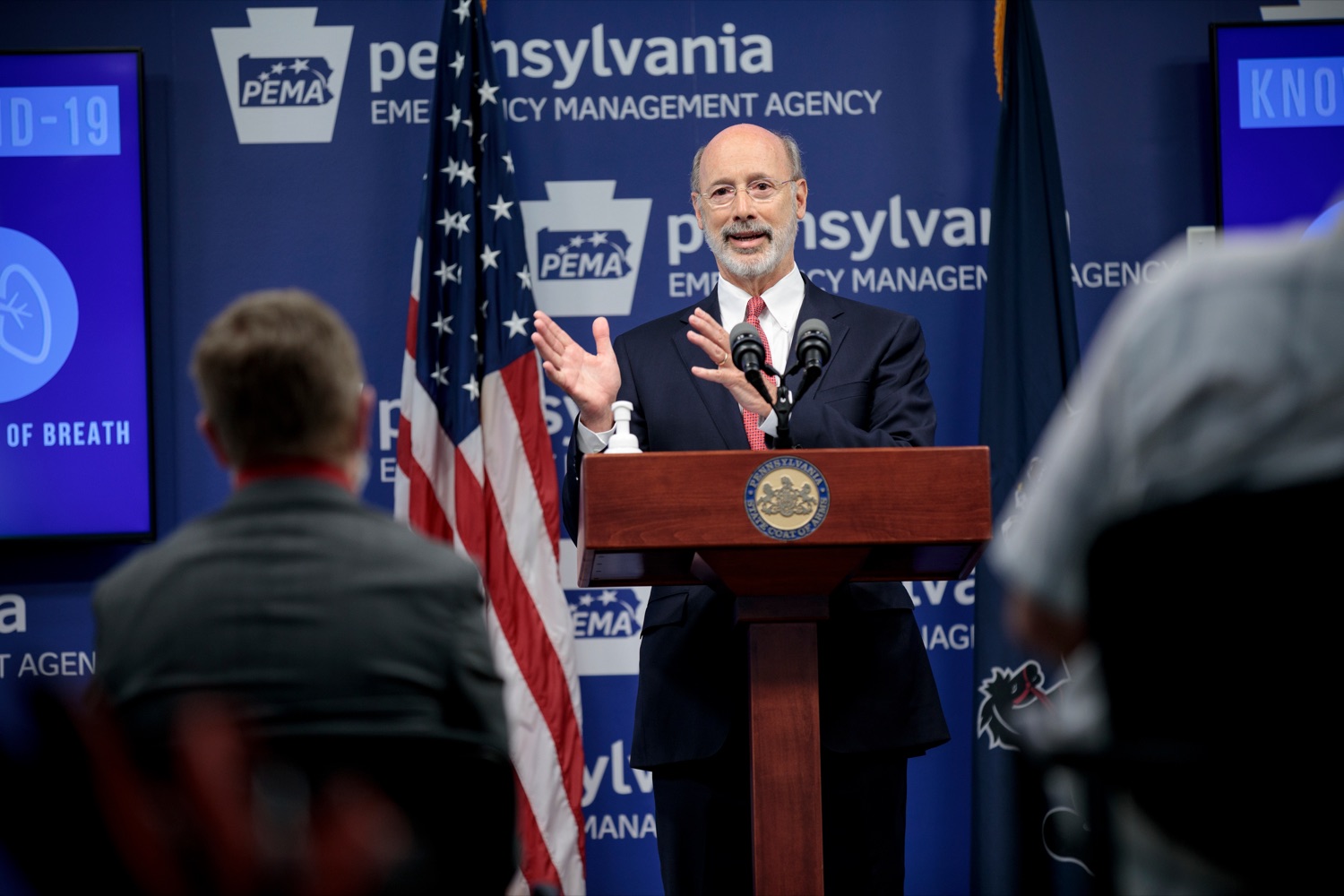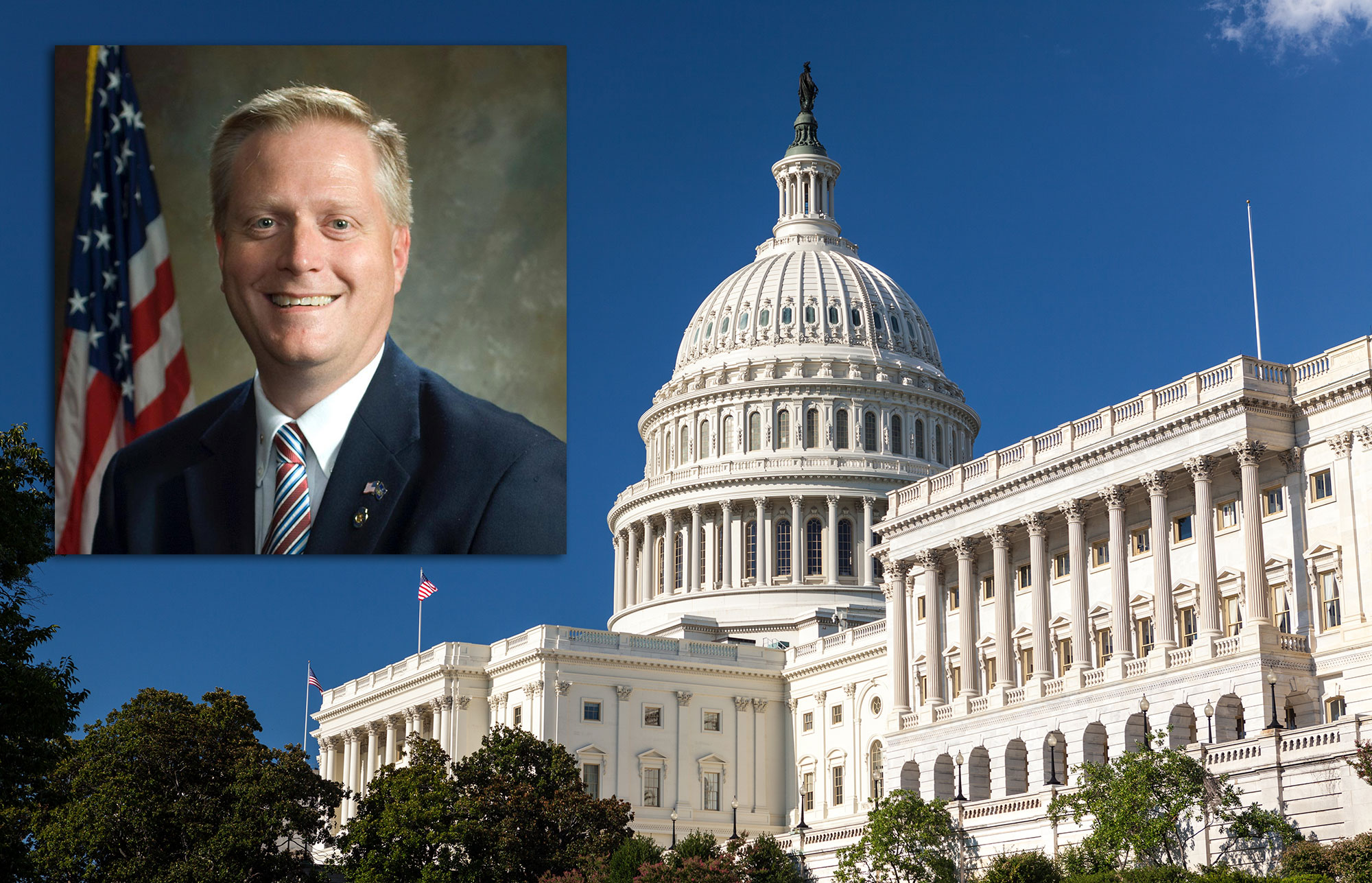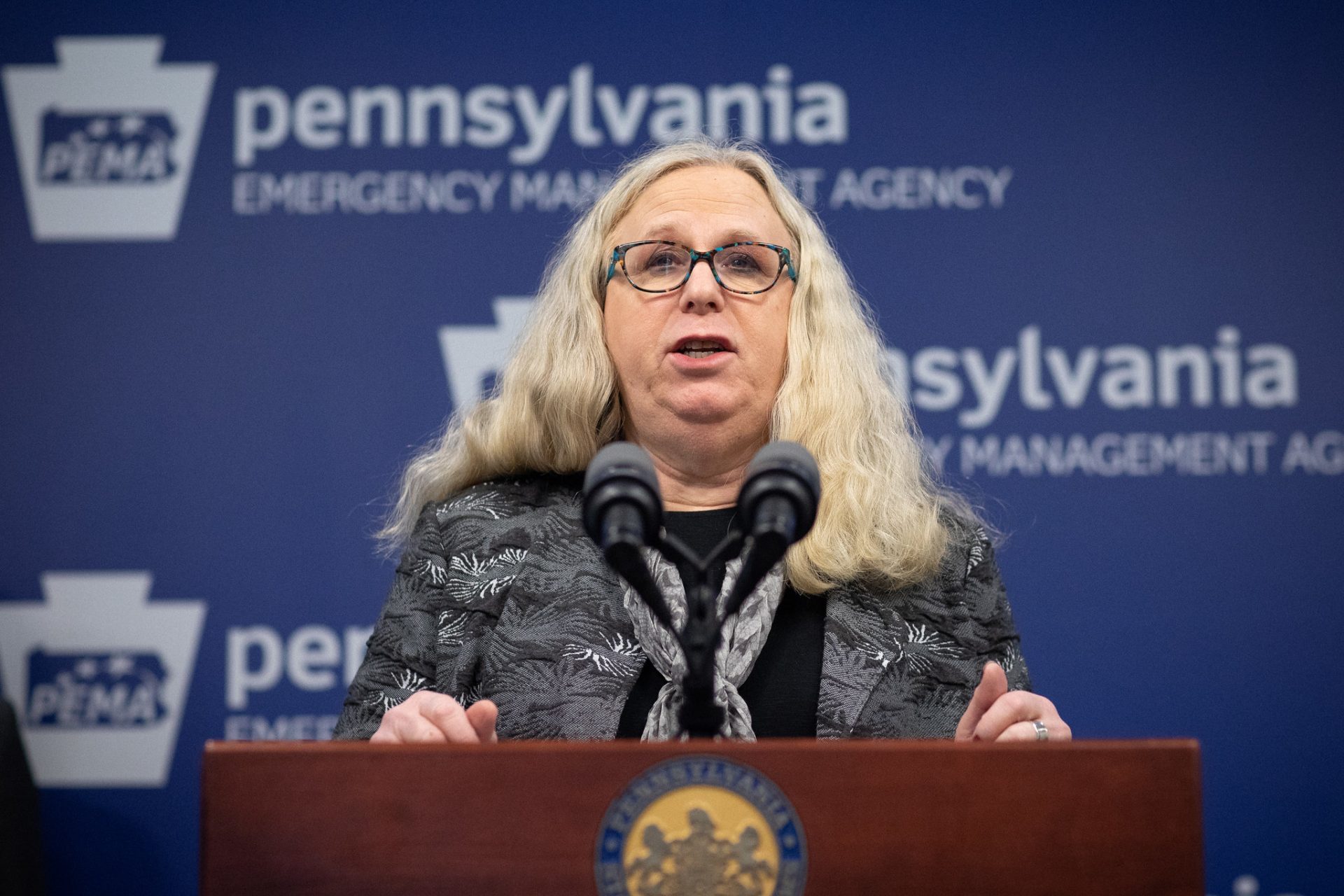
Governor Tom Wolf speaks during a press conference addressing the 2019 Novel Coronavirus (COVID-19) in Pennsylvania, inside PEMA headquarters on Wednesday, June 10, 2020.
Harrisburg, Pa. – Today, Governor Tom Wolf released a statement condemning House Resolution 1032 as a partisan attack on the integrity of Pennsylvania elections. The resolution undermines the authority of county-level elections officials and the Department of State to administer safe, secure and non-partisan elections. The following is the governor’s statement:
“The House Republicans are not only walking in lockstep with President Trump to try to sow chaos and put the results of the election in question, they are also taking steps to take the authority to administer elections away from the Department of State. The resolution also attacks the integrity of county election administrators. This is an unprecedented attack on non-partisan election administrators at a time when we should all be doing everything we can to instill confidence in our elections.
“Last year we came together on a bipartisan basis to pass landmark legislation to modernize Pennsylvania’s election system. Now House Republicans are hypocritically bowing to political pressure to undermine the mail voting that has proven to be a tremendous benefit to Pennsylvanians during the pandemic.
“Despite the best efforts of the House Republicans, Pennsylvania will administer our elections safely and securely. And we will stand up to House Republicans’ partisan efforts to interfere in our elections to benefit themselves and their political schemes.”












